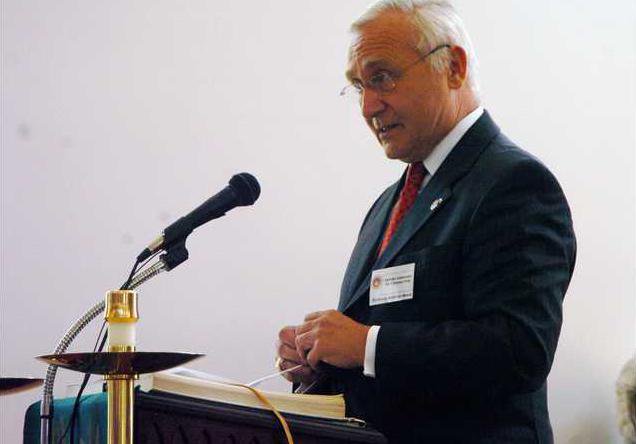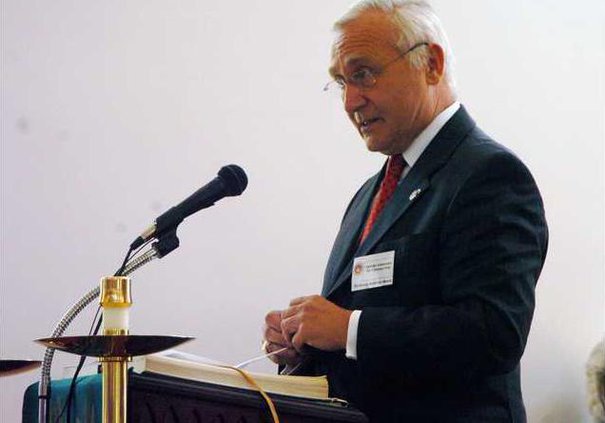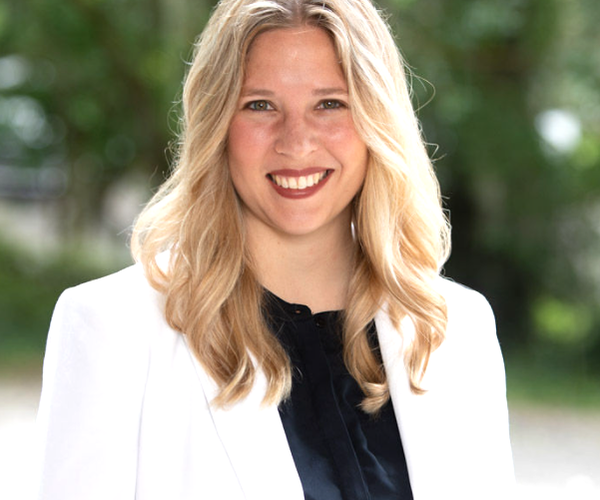They came from across the state, around the U.S. and from the middle of Europe to pack the small but venerable New Jerusalem Evangelical Lutheran Church on Monday morning.
The descendants of the original Salzburger settlers celebrated Heritage Day at New Ebenezer, marking 275 years since their ancestors — uprooted from Germany in pursuit of religious freedom — put down new roots in the New World.
As part of the event, the Georgia Salzburgers unveiled a statue of Rev. Johann Martin Boltzius, the spiritual and political leader of the settlement from its inception in 1734 until his death, and the publication of a book of Boltzius’ letters.
“It is a dream come true today,” said Martha Zeigler, who helped push the statue project along. “It’s just going to uplift me.”
The life-size statue, created by T.J. Dixon and James Nelson of Encinitas, Calif., stands between the church and the museum.
“This has been a wonderful beginning for our 275th,” said Ann Purcell, past president of the Georgia Salzburger Society. “We have a lot of folks learning more and more about their heritage. Both things came together and look at all the people that have been here throughout the day — it’s been wonderful, wonderful.”
Said Dr. Lutz H. Gorgens, the German consul general: “We are humbled by the 275 years of history.”
Dr. Christian Prosl, the Austrian ambassador to the U.S., said what was being celebrated was religious freedom.
“This is something we take for granted in the United States and Europe but not in other countries of the world,” he said. “It is also a celebration of people who believed in something and put their lives in jeopardy because of their beliefs.”
“This is indeed a great day of celebration and remembrance, of remembrance of the Salzburger exiles who sought religious freedom,” said Vince Exley, chairman of the Boltzius letters book project.
The book project included turning Boltzius’ Baroque style of handwriting into modern German and then translating that into English.
With the help of the Francke Foundation, where Boltzius received his commission to meet the band of Lutherans heading for Georgia via Rotterdam and England, the book project team had Dr. Jurgen Groschl select the letters and Dr. Karsten Hommel transcribed the letters into modern German.
The project committee turned to Dr. Russell Kleckley, a professor at Augsburg College in Minnesota, to do the translation.
“We sought a church scholar who could understand the mind and the meaning,” Exley said. “It became more than the translating of letters. It became a work of love. Dr. Kleckley has produced a very fine and scholarly translation of Rev. Boltzius’ letters.”
Exley and Gorgens both remarked how Boltzius was ahead of his time in his thinking and his actions. Boltzius incorporated coeducational philosophy at a time when females weren’t being taught in schools elsewhere in the colony. A large percentage of the women at Ebenezer were literate when many others in the colony were not.
He also ministered to Native Americans, African Americans and other European settlers.
“He was inclusive before we knew what the word meant,” Exley said.
He also stood against the practice of slavery and the splitting apart of families.
“Boltzius was a great role model of values received and values returned,” Gorgens said.
Rev. John Barichivich, pastor of New Jerusalem Evangelical Lutheran noted the 21-inch thick walls of the church that have stood for more than 200 years.
“This is possible because the Salzburgers gave their life to Christ,” he said. “It is not just a history but a living history.”
Prosl said Europe is anxious to work closely with the U.S., especially given a new direction for dialogue.
“We have the same values on both sides of the Atlantic, the values we are fighting for,” he said. “We have to work together to tell others who may not be that advanced in their philosophical and religious thoughts how life can be, how wonderful it can be and how successful we can be if we work together in religious freedom and civic freedom.”
Purcell said it was exciting to have the exchanges with the German Heritage Society and German Friendly Society in Savannah. Also, leaders from Halle, Germany, home of the Francke Foundation, have exchanged letters with Savannah’s municipal leadership.
“I can’t say enough, other than to say thank you to our community for their participation,” Purcell said. “Our community has been very supportive of the heritage here. History is tremendous, and it doesn’t die. You just have to bring it life and we’re certainly doing that today.”
Zeigler had been under the weather but the member of the church choir also wouldn’t have missed Monday’s celebration.
“I look out those windows, and I can see those Salzburgers mingling on the ground,” she said. “And we’re going to carry it on, too.”








